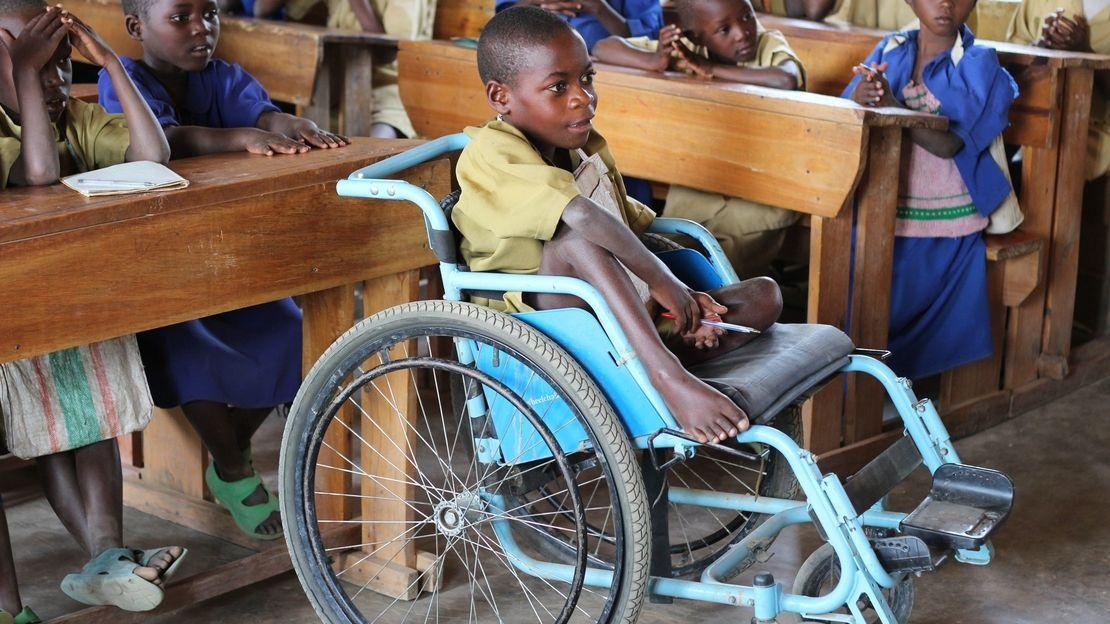Africa-Press – Botswana. Stakeholders have been requested to play a role in rehabilitation process to meet the needs of People Living With Disabilities (PLWDs).
Information Technology (IT) coordinator from the office of the district commissioner, Ms Onalenna Dikole said rehabilitation process was costly and demanding, hence the need for different stakeholders to play their role.
Ms Dikole was speaking at a three-day prosthetic fitting seminar in Maun on Wednesday.
The event was held under the theme Expanding Botswana’s Rehabilitation Paradigm and 11 amputees were assisted with prosthetic appliances.
The seminar was organised by Tshidilo Stimulation Centre, Motor Vehicle Accident Fund (MVA), University of Botswana School of Medicine and University of Pennsylvania, which donated and performed the fittings of prosthetic appliances to beneficiaries.
However, Ms Dikole said the convention on the rights of persons with disabilities, spoke to the rehabilitation and habitation and good health for PLWDs.
“Botswana as a member state and signatories to this protocol, we are obliged to ensure that our clients who needs rehabilitation continue to receive this service at all times to enable them to have better lives,” she added.
She also acknowledged that Botswana’s prosthetics situation was still at its infancy, saying that technologies change from time to time hence the need to come up with innovation that was affordable, user-friendly, readily available and cost effective.
Ms Dikole reiterated that several technologies had been used in Botswana and appreciated that more technologies continued to come through. The theme, she said was relevant as all could see the country’s rehabilitation space progressing through knowledge and technologies.
She also commended MVA for its timely input and participation in clients’ lives, saying the goal of rehabilitation was to help the patient return to the highest level of function and independence possible while improving the overall quality of life.
Maun MVA branch manager, Mr Cecil Mosojane noted that the fund aimed to enhance quality of life by promoting road safety and rehabilitation of road crash victims through compensation and support of those affected.
MVA, he said also assisted in the fitting of prosthetic appliances citing that currently, they assisted 144 clients across the country of which eleven were from Maun.
He also mentioned limited prosthetic services as one of the challenges faced by the country and escalating medical costs which limit them from assisting more clients.
Mr Mosojane stressed the need for collaboration with other service providers to develop best practice prosthetic management.
Meanwhile, Professor Timothy Dillingham from the University of Pennsylvania noted that expanding the capability of Botswana prosthetists would help meet current demand.
The country, he said needed a prosthetic care delivery model to address the existing challenges, adding that in 2021, they visited Botswana under the Upenn-University of Botswana partnership and learned about some of the challenges faced.
Patients, he said complained about lower profile devices and called for better appearance.
A prosthetist from Tshidilo Stimulation Centre, Mr Isaiah Moyo said rehabilitation required a multi-disciplinary approach, citing that issues of rehabilitation had not yet been understood by both the government and the community at large. The country, he said was in a middle income status and rehabilitation still proved to be very expensive and scarce in the country.
He also noted that the country had only 10 prosthetists and four facilities offering the service.
“Our ultimate goal is to have rehabilitation modality that is user friendly and affordable to our clients,” he said.
For More News And Analysis About Botswana Follow Africa-Press






